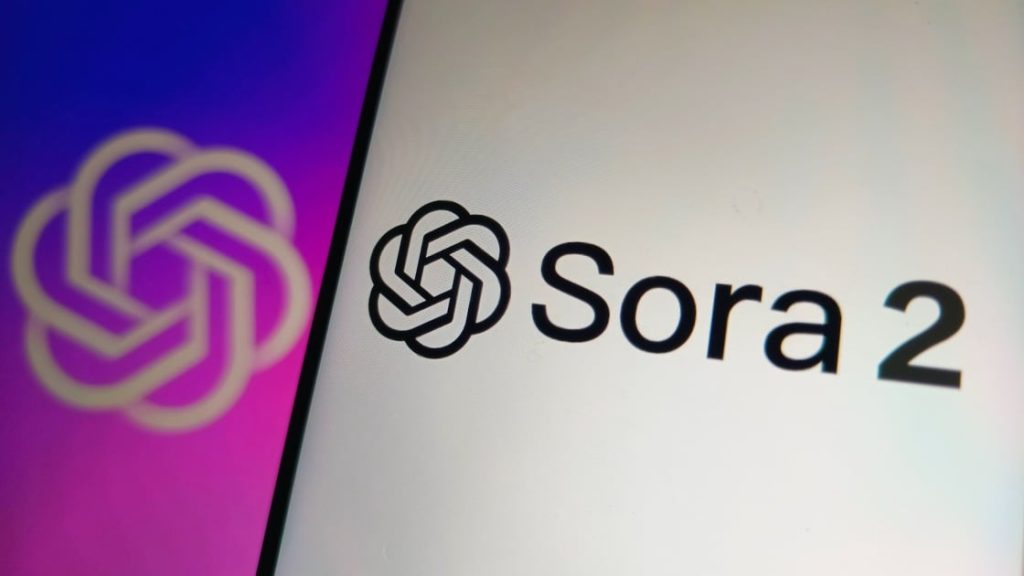Don’t miss out on our latest stories. Add PCMag as a preferred source on Google.
OpenAI’s Sora app has gone viral for letting users create AI-generated videos of themselves. But what does it do with your facial data? Can you delete your account if you change your mind?
OpenAI confirms that it does need to store your facial and audio data for Sora’s Cameo feature, which can create disturbingly real “deepfakes” of your likeness, including your voice.
This Tweet is currently unavailable. It might be loading or has been removed.
However, the company has committed to deleting users’ facial and audio data for Cameo if they cancel their account. “Uploaded cameos are kept by OpenAI to use for new Sora videos, and are encrypted at rest and in transit,” OpenAI tells PCMag. “Uploads are automatically deleted within 30 days after users delete them. You can see our retention policies here.”
Still, that policy doesn’t specifically address the Sora app. Rather, it somewhat vaguely says: “We’ll retain your Personal Data for only as long as we need in order to provide our Services to you, or for other legitimate business purposes such as resolving disputes, safety and security reasons, or complying with our legal obligations.”
(Credit: OpenAI)
However, OpenAI has indicated that it plans to tightly control the Cameo feature. “Only you decide who can use your cameo, and you can revoke access at any time,” the company wrote in a separate blog post.

Get Our Best Stories!
Your Daily Dose of Our Top Tech News

By clicking Sign Me Up, you confirm you are 16+ and agree to our Terms of Use and Privacy Policy.
Thanks for signing up!
Your subscription has been confirmed. Keep an eye on your inbox!
Many users have already found that the Cameo feature can be used for amusing effects, especially to lampoon OpenAI CEO Sam Altman. But the company concedes there’s a small chance Sora can create rule-breaking videos, including sexual deepfakes featuring a user’s likeness, despite the safeguards in place.
It also turns out that trying to shut down your Sora account comes with a cost. One user posted a screenshot showing that OpenAI will also delete your ChatGPT account if you try and shut down your Sora presence. This seems to be because Sora requires you to register with an OpenAI account. (Similar to how Threads is linked to Instagram.)
This Tweet is currently unavailable. It might be loading or has been removed.
OpenAI’s message about the Sora account deletion adds: “You cannot reuse the same email or phone number for a new account. If you’ve been using ChatGPT with the API, this access will also be deleted.”
Recommended by Our Editors
We’ve reached out to OpenAI for comment about the account deletion policy for Sora, and we’ll update the story if we hear back. However, it appears to align with the company’s existing policy, which revokes access to all OpenAI services if the user chooses to delete their account. “For security reasons, once you delete your account, you may not re-sign up for an account with the same email address,” the policy adds.
UPDATE: OpenAI says: “We’re committed to giving people clear ways to manage their OpenAI accounts, and you can delete yours today. We’re also working on a way to delete your Sora account separately, and we’ll let people know as soon as that’s available.”
Disclosure: Ziff Davis, PCMag’s parent company, filed a lawsuit against OpenAI in April 2025, alleging it infringed Ziff Davis copyrights in training and operating its AI systems.
About Our Expert

Michael Kan
Senior Reporter
Experience
I’ve been a journalist for over 15 years. I got my start as a schools and cities reporter in Kansas City and joined PCMag in 2017, where I cover satellite internet services, cybersecurity, PC hardware, and more. I’m currently based in San Francisco, but previously spent over five years in China, covering the country’s technology sector.
Since 2020, I’ve covered the launch and explosive growth of SpaceX’s Starlink satellite internet service, writing 600+ stories on availability and feature launches, but also the regulatory battles over the expansion of satellite constellations, fights with rival providers like AST SpaceMobile and Amazon, and the effort to expand into satellite-based mobile service. I’ve combed through FCC filings for the latest news and driven to remote corners of California to test Starlink’s cellular service.
I also cover cyber threats, from ransomware gangs to the emergence of AI-based malware. Earlier this year, the FTC forced Avast to pay consumers $16.5 million for secretly harvesting and selling their personal information to third-party clients, as revealed in my joint investigation with Motherboard.
I also cover the PC graphics card market. Pandemic-era shortages led me to camp out in front of a Best Buy to get an RTX 3000. I’m now following how President Trump’s tariffs will affect the industry. I’m always eager to learn more, so please jump in the comments with feedback and send me tips.
Read Full Bio


